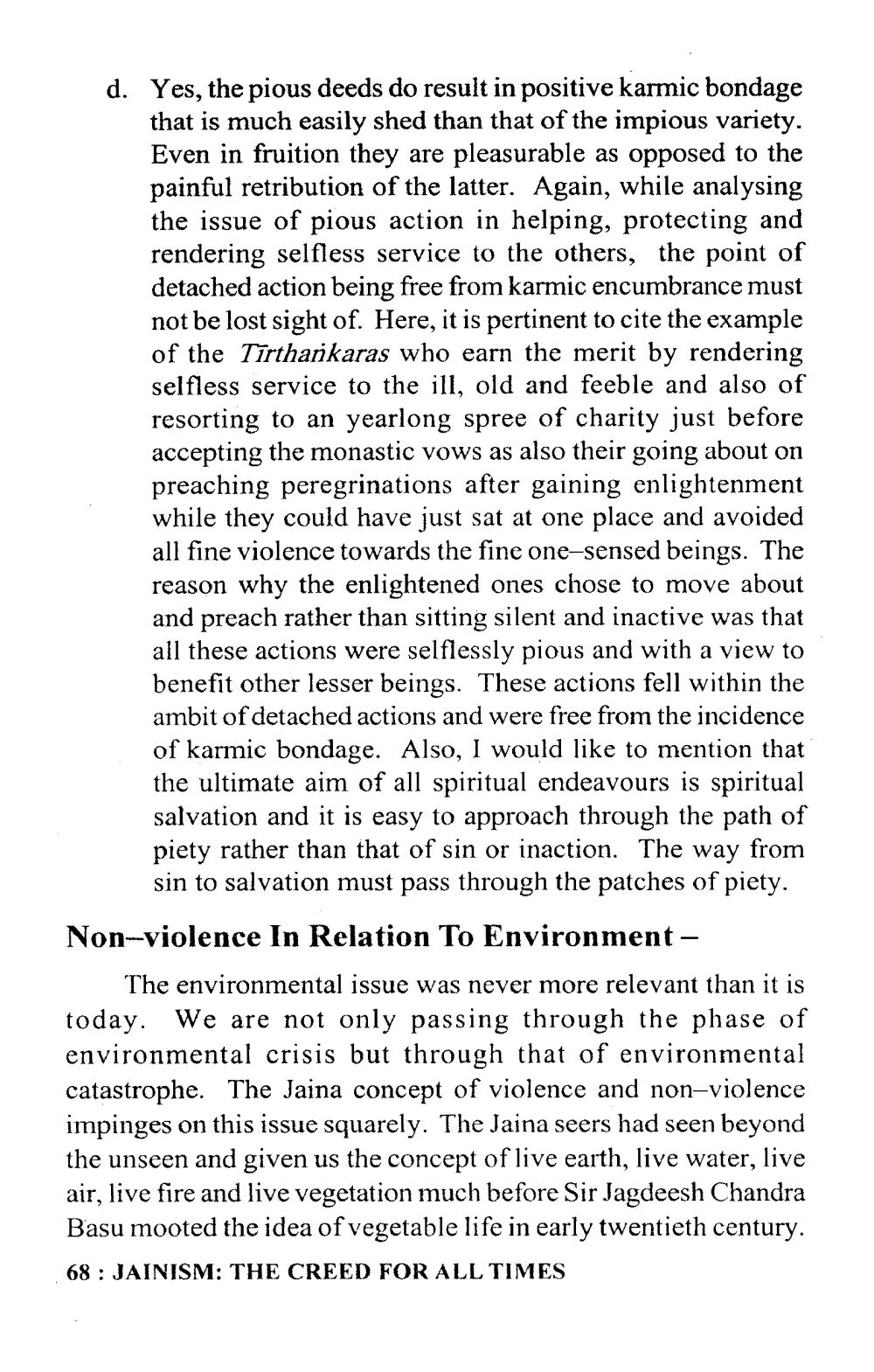________________
d. Yes, the pious deeds do result in positive karmic bondage
that is much easily shed than that of the impious variety. Even in fruition they are pleasurable as opposed to the painful retribution of the latter. Again, while analysing the issue of pious action in helping, protecting and rendering selfless service to the others, the point of detached action being free from karmic encumbrance must not be lost sight of. Here, it is pertinent to cite the example of the Tīrtharikaras who earn the merit by rendering selfless service to the ill, old and feeble and also of resorting to an yearlong spree of charity just before accepting the monastic vows as also their going about on preaching peregrinations after gaining enlightenment while they could have just sat at one place and avoided all fine violence towards the fine one-sensed beings. The reason why the enlightened ones chose to move about and preach rather than sitting silent and inactive was that all these actions were selflessly pious and with a view to benefit other lesser beings. These actions fell within the ambit of detached actions and were free from the incidence of karmic bondage. Also, I would like to mention that the ultimate aim of all spiritual endeavours is spiritual salvation and it is easy to approach through the path of piety rather than that of sin or inaction. The way from sin to salvation must pass through the patches of piety.
Non-violence In Relation To Environment
The environmental issue was never more relevant than it is today. We are not only passing through the phase of environmental crisis but through that of environmental catastrophe. The Jaina concept of violence and non-violence impinges on this issue squarely. The Jaina seers had seen beyond the unseen and given us the concept of live earth, live water, live air, live fire and live vegetation much before Sir Jagdeesh Chandra Basu mooted the idea of vegetable life in early twentieth century. 68 : JAINISM: THE CREED FOR ALL TIMES




